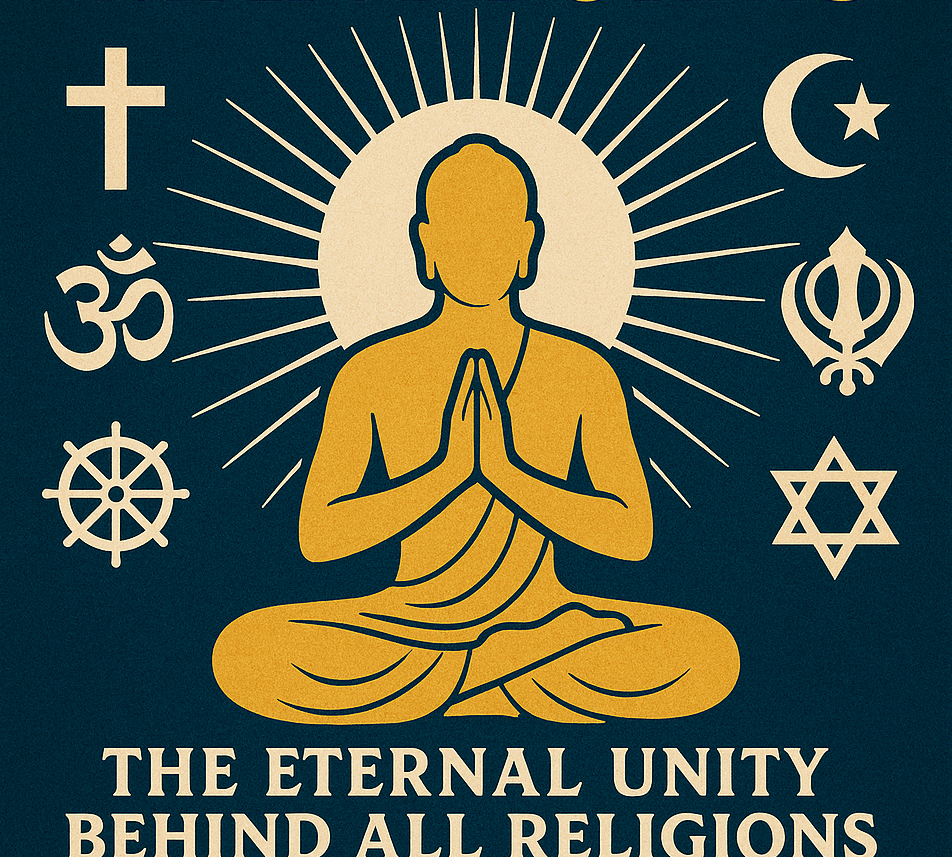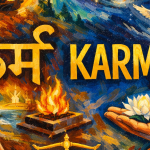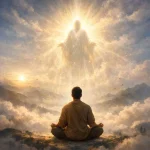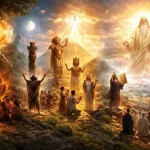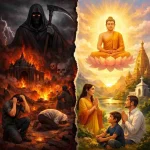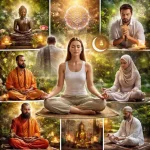One God, Many Forms – The Eternal Unity Behind All Religions
For thousands of years, humankind has sought the Divine — sometimes in temples, sometimes in mosques, and sometimes in churches or shrines scattered across the world. Yet, behind every symbol, idol, or sacred name lies one timeless question: Is God one, or are there many gods?
The truest answer, whispered through the ages, is simple yet profound — God is One. Humanity may perceive the Divine through different lenses, languages, and traditions, but the Source remains the same. Every religion, in its own way, is a path leading to that single infinite consciousness which sustains all life.
In the ancient Vedic scriptures of India, this concept was beautifully expressed as: “Ekam Sat Vipra Bahudha Vadanti” — “Truth is One, the wise call it by many names.” This line, composed over 3,000 years ago, carries the essence of universal spirituality. It acknowledges that people may worship differently, yet they all reach toward the same Divine Reality.
In Islam, this truth echoes in the phrase “La ilaha illallah” — “There is no god but Allah.” The oneness of God is the foundation of faith, emphasizing that all creation flows from a single divine will. Christianity proclaims a similar essence in the commandment, “Thou shalt have no other gods before Me,” and yet the message of Christ centers on love, forgiveness, and unity — reflections of that same universal truth.
In Sikhism, Guru Nanak Dev Ji’s opening verse — “Ik Onkar” — declares that there is only one Supreme Being, present in all creation. Buddhism, though often non-theistic, speaks of enlightenment — the realization of the eternal truth within, beyond form or name. Even indigenous traditions, from the Native American Great Spirit to the African Creator, acknowledge one life force that binds the universe together.
This unity behind diversity is the spiritual thread that connects humanity. Differences in ritual, language, or dress are like the many colors of a single rainbow — distinct, yet born of the same light. The tragedy of human history is not that God is divided, but that we have divided ourselves in His name.
If we look beyond the external forms of worship, we begin to see the same essence shining everywhere. When a Muslim bows in prayer, when a Hindu lights a lamp before an idol, when a Christian kneels before the cross, or when a Buddhist meditates in silence — all are seeking peace, all are yearning for the same divine connection. The forms differ, but the longing is identical.
The greatest spiritual teachers have always emphasized this unity. Swami Vivekananda declared at the World’s Parliament of Religions in 1893: “As the different streams having their sources in different places all mingle their water in the sea, so, O Lord, the different paths which men take… all lead to Thee.” His words remind us that diversity in faith is not a barrier but a blessing — it allows the Infinite to be experienced through countless expressions of love and devotion.
In today’s world, where conflict often arises in the name of religion, rediscovering this truth is more important than ever. When we understand that all religions are different languages of the same truth, our hearts expand with compassion. We stop arguing over names and start honoring the essence — Love, Peace, and Oneness.
Ultimately, the Divine cannot be confined to any single form, name, or image. God is beyond religion, beyond race, beyond boundaries — infinite, eternal, and ever-present. Whether you call Him Allah, Ishwar, Jehovah, Waheguru, or simply “The Light,” the truth remains the same:
One God, Many Forms — One Humanity, One Love.
~Religion World

